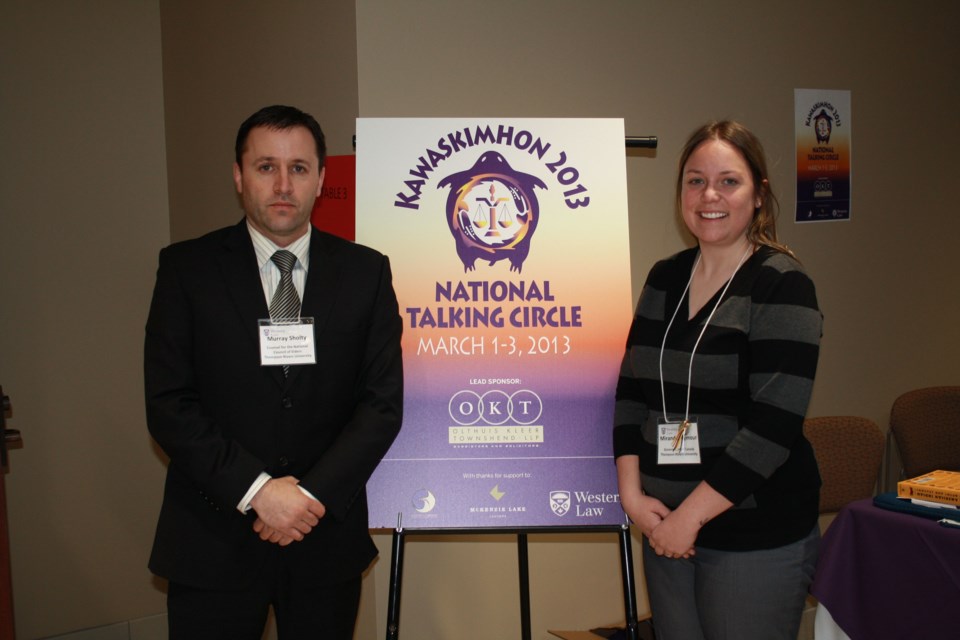Should people living on First Nations reserves be allowed to own their land outright?
Canadian law does not allow for fee simple ownership which gives the owner absolute title to land. But for three days last weekend, former UNBC student Miranda Schmold fought for that right.
As part of Kawaskimhon Moot 2013, which wrapped up Sunday at the University of Western Ontario in London, Ont., the Thompson Rivers University student was on a team of law students representing the government of Canada in a mock debate, and Schmold came out in support of private ownership on reserves.
On the other side of the aboriginal ownership spectrum was Murray Sholty, also a UNBC graduate and TRU classmate of Schmold's, representing a group of native elders against the idea to change ownership principles outlined in the Indian Act. Sholty was opposed to the federal government holding legal jurisdiction over reserve land, which gives Ottawa the right to legislate and manage aboriginal property.
While nothing was settled in the end, the three-day national forum gave law students from all over the country a chance to debate aboriginal issues and solve disputes using traditional methods that go beyond the judges or juries of society's courtrooms.
"Our position was to endorse the proposal to have private ownership on reserves and Murray was on an opposing team, representing the council for elders, who don't want to lose the land base," said Schmold, vice-president of TRU's Indigenous Law Students' Association. "It was different from most moot competitions, where they set it up as a fake court; this was set up as a talking circle."
The aboriginal talking circle, with nobody sitting in a position of authority above the rest of the group or at the head of a table, is designed to build consensus by breaking down barriers and encouraging people to speak openly and honestly without fear their thoughts and opinions will be dismissed or silenced before they are heard.
"It doesn't have to be the traditional law model of disputing and one party winning and the other party not winning," Schmold said. "The table I was sitting at didn't actually come to an agreement. It just showed me an alternative dispute-resolution model, rather than the adversarial model set up in courtrooms right now.
"Overall, it was an intense experience that hit home to me that issues and disputes aren't settled easily with the hammer of the gavel. It can be done by sitting down and talking and being open to ideas and new ways of solving issues."
Schmold was back in Kamloops this week to attend the real-life hearing of the first-ever Kamloops First Nations court. The case involved a 21-year-old man, Tyler Collins, who pleaded guilty and will be sentenced next month for breaching a court order that bans him from drinking alcohol. The ban was a condition of his probation after he was released from jail for sexual assault. Rather than a 90-day jail term, the talking circle gave him the option of sticking to a healing plan, where he would talk to elders and seek the help of addictions counsellors. If he sticks to that plan, he will avoid the jail sentence.
"The talking circle we did in the Moot was very similar to this First Nations court," Schmold said. "There is a First Nations court that sits once a month in New Westminster and this was the first of its kind here in Kamloops. I would hope this could move its way to Prince George and some of the northern communities where aboriginals are overly represented in the justice system."
Schmold graduated UNBC with a geography degree in 2011, while Sholty focused on business administration for his UNBC masters studies. For their participation in the moot event, both earned three credits toward their law degrees. They are on course to complete their studies at TRU in the spring of 2014 as part of the program's first-ever graduating class.


